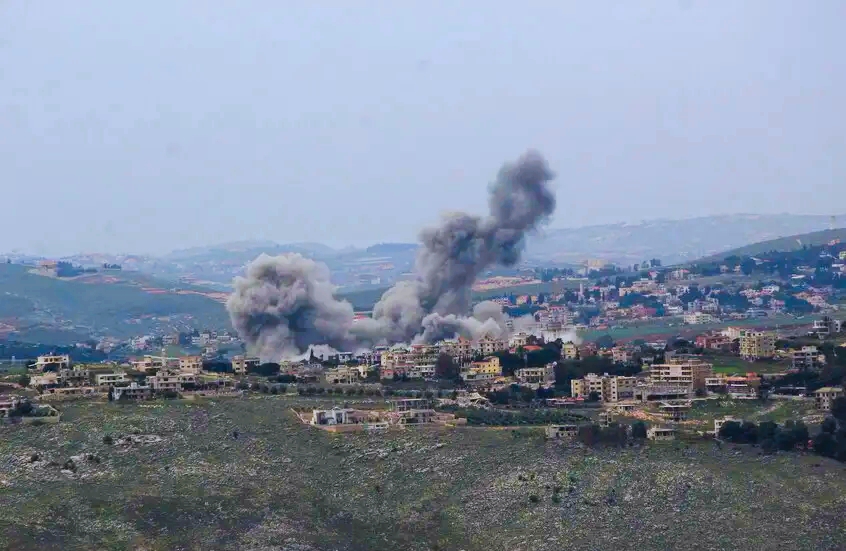The Israeli army announced today, Thursday September 18, 2025, the start of airstrikes on targets belonging to Hezbollah in southern Lebanon, just hours after warnings were issued to residents of several villages in the area to evacuate their homes.
The spokesperson for the Israeli army in Arabic Avichai Adraee stated in a message via the "X" platform:
"The Defense Forces will soon attack military infrastructure belonging to the terrorist Hezbollah throughout southern Lebanon, in response to its prohibited attempts to resume its activities in the area."
The army published maps of four buildings located in the villages of Mays al-Jabal, Dbayn, and Kfar Tebnit, urging their residents and those of nearby buildings to evacuate "immediately" and to stay at least 500 meters away from them.
Adraee warned, saying: "Staying in these buildings puts you at risk."
Later, the National News Agency in Lebanon announced the execution of at least two airstrikes targeting the villages of Mays al-Jabal and Dbayn, in addition to another "hostile airstrike" that hit the town of Kfar Tebnit.
The agency reported that the airstrikes on Thursday came amid a noticeable displacement of residents, particularly on the road connecting the town of Kfar Tebnit and the city of Nabatieh.
In an official comment, Lebanese Prime Minister Nawaf Salam called on the international community, especially the countries sponsoring the ceasefire agreement, to "exert maximum pressure on Israel to immediately stop its aggressions," according to a statement issued by his office during a cabinet session.
These developments come at a sensitive time, just before Hezbollah commemorates the anniversary of the killing of its former Secretary-General Hassan Nasrallah on September 27, 2024, by an Israeli strike in the southern suburbs of Beirut.
They also coincide with the first anniversary of Israel's detonation of thousands of wireless communication devices that were in the possession of Hezbollah members, resulting in the deaths of 37 people and injuring around 3,000, according to the Lebanese Ministry of Health.
Despite the ceasefire agreement reached in November 2024, following a two-month war between Israel and Hezbollah amidst a military confrontation that lasted over a year, Israel continues to carry out near-daily airstrikes that it claims target weapons depots and infrastructure of the party.
The agreement stipulated Hezbollah's withdrawal from the southern Litani River (about 30 kilometers from the border) and the dismantling of its military structure in that area, in addition to restricting the carrying of arms in Lebanon to official agencies.
The agreement also included Israel's withdrawal from the positions it advanced to during the war, but Israeli forces remain stationed in five hills in southern Lebanon, in continuous violation of the agreement's terms.
In a significant internal development, Hezbollah's leadership is facing increasing pressure, as the Lebanese government made a decision in August to restrict arms to the Lebanese army and security forces only.
The Lebanese army has put a plan in place in September to implement the decision, within the framework of the ceasefire agreement, but Hezbollah rejected that step.
Simultaneously with the airstrikes in the south, Israel announced the execution of a strike targeting a vehicle in eastern Lebanon, resulting in the deaths of two people.
Israel confirms that its repeated operations in Lebanon aim to strike Hezbollah's military capabilities and prevent it from reorganizing, despite the declared commitment to the ceasefire agreement.

